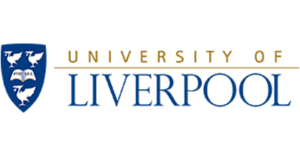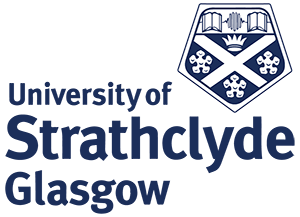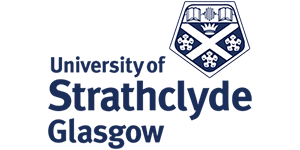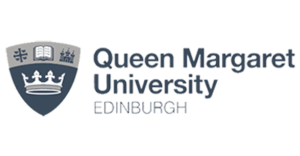Undergraduate Diploma in
Healthcare Management
Overview
Undergraduate Diploma in Healthcare Management is aimed at learners who want to explore the healthcare industry by acquiring practical experience in the domain of healthcare. The pathway is also open to learners from business disciplines who aim to work in a management capacity in the healthcare industry and who want to take on managerial and leadership roles.
The programme helps the learners in developing managerial and leadership skills within the healthcare sector. It covers the managerial operations and services in healthcare facilities including an in-depth knowledge and understanding of healthcare governance and quality management. The programme also includes an in-depth understanding and application of team building theories, team performance, shared goals, objectives and team’s challenges. Hence, enable learners to develop the necessary knowledge & skills required to lead in a healthcare environment.
The Undergraduate Diploma comprises of the ISDC International Certificate in Business and the ISDC International Specialised Diploma in Business qualifications which have been credit rated by the National Qualifications Framework (NQF) of Scotland at Level 7 & 8 respectively on the Scottish Credit and Qualifications Framework (SCQF) with 120 allocated SCQF credits at each levels. Students will have exit options after the completion of Level 7 with an exit award of the ISDC International Certificate in Business and a final exit after the completion of Level 8 with an exit award of the ISDC International Specialised Diploma in Business.
Both qualifications enable students to progress to relevant undergraduate programmes of study in compliance with the entry requirements of individual universities in the UK with Credit Exemptions. In addition, both qualifications are at Level 5 of the European Qualifications Framework (EQF).
Level 7 is widely considered as the First Year of Undergraduate Study; Level 8 is widely considered as the Second year of the Undergraduate study and after Level 7; students are accepted for entering into the Second Year of the Undergraduate Degree and similarly Students are accepted for entering into the Third Year of the Undergraduate Degree after the Level 8 completion.
Please see a link to the SCQF database form where you can access the ISDC qualification information https://scqf.org.uk/about-the-framework/scqf-database/ .
The SQA is the national awarding body in Scotland responsible for the development, accreditation, assessment, and certification and awarding of qualifications other than University Degrees. SQA was established by the Education (Scotland) Act 1996 which is an act of Parliament and as such is responsible to the Scottish Government.
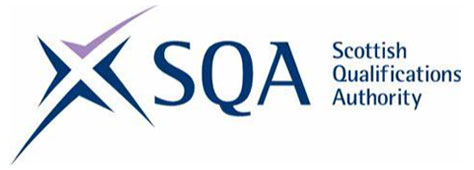
As an internationally recognised awarding body many of the qualifications that are quality assured and certificated by SQA are accepted by UK and International Universities for advanced entry and/or credit transfer into Undergraduate and Postgraduate Programmes. Additionally, the UK University sector are important stakeholders of SQA who are integral to the development and validation of a range of SQA qualifications which can facilitate progression pathways to University.
Programme Structure
In order to successfully complete ISDC’s Undergraduate Diploma in Healthcare Management Qualification, you will have to complete six modules of Level 7, three core modules of Level 8 and Healthcare Management specific modules.
Entry Requirements
Entry is open to Students who have successfully completed A-Level / GCE / GCSE / 10+2 / 12 years of formal education.
If you have completed other comparable programmes awarded by other recognised regulated awarding bodies or local equivalents. ISDC will consider your educational achievements, your work experience and your motivation, and make a decision on entry to the programme accordingly.
As all our programmes are delivered and assessed via assignments to be written in English, you will need to be highly competent in Reading, Writing, Listening and Speaking in the same.
Most importantly, you need to be motivated, willing and able to manage your own time so that you successfully complete the required study hours and the assessments required.
You will be able to avail exemptions for Level 7, if you have achieved credits from a University within the last 5 years, in comparable business-related subjects.
Fees & Funding
Undergraduate Diploma in Healthcare Management (SCQF Level 7 + SCQF Level 8) : £2250*
International Certificate in Business (SCQF Level 7) : £1000
International Specialised Diploma in Business Management (SCQF Level 8) : £1250]
Progression Opportunities
Undergraduate Diploma in Business Management from ISDC will enable you to gain direct entry into the final year of a UK Bachelor’s Degree Programme.*
Upon successful graduation, the learner will be eligible to apply for a two-year Post Study Work Visa (as dictated under the current UK rules and regulations).
Note: Learners choosing to complete the UK awarded degree online will not qualify for a Post Study Work Visa.
| Programmes Offered | ISDC Qualification and Pathway required for Progression Requirements | Online Y/N | Face To Face Y/N | Entry Year |
|---|---|---|---|---|
| BA (Hons) Business | Completion of ISDC Level 7 & Level 8 – Any Pathway | Yes | No | 3rd Year |
| BA (Hons) Professional Studies | Completion of ISDC Level 7 & Level 8 – Any Pathway | Yes | No | 3rd Year |
| Programmes Offered | ISDC Qualification and Pathway required for Progression Requirements | Online Y/N | Face To Face Y/N | Entry Year |
|---|---|---|---|---|
| BA (Hons) Business and Management (Top-Up) | Completion of ISDC Level 7 & Level 8 – Any Pathway | Yes | No | 3rd Year |
| BA (Hons) Business & Marketing | Completion of ISDC Level 7 & Level 8 – Any Pathway | Yes | No | 3rd Year |
| Programmes Offered | ISDC Qualification and Pathway required for Progression Requirements | Online Y/N | Face To Face Y/N | Entry Year |
|---|---|---|---|---|
| BA(Hons) Business Management | Completion of ISDC Level 7 & Level 8 with Business Management Pathway | No | Yes | 3rd Year |
| BA(Hons) Risk Management | Completion of ISDC Level 7 & Level 8 with Business Management Pathway | No | Yes | 3rd Year |
| Programmes Offered | ISDC Qualification and Pathway required for Progression Requirements | Online Y/N | Face To Face Y/N | Entry Year |
|---|---|---|---|---|
| BSc General Business Management | Completion of ISDC Level 7 & Level 8 – Any Pathway | No | Yes | 3rd Year |
| BSc Human Resource Management | Completion of ISDC Level 7 & Level 8 – Any Pathway | No | Yes | 3rd Year |
| BSc Marketing Management | Completion of ISDC Level 7 & Level 8 – Any Pathway | No | Yes | 3rd Year |
| BSc International Business | Completion of ISDC Level 7 & Level 8 – Any Pathway | No | Yes | 3rd Year |
Are You Ready To Start?
Still Have Queries ?
Please fill in the form and an expert from the admissions office will call you soon.



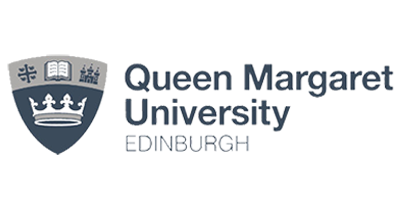
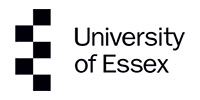
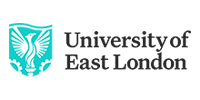


















 Ranked at 85th, the University of Essex is a public research university in Essex, England. Established in 1963 the university welcomed students in 1964 and acquired university status by Royal Charter in 1965. With 14,926 students, the University of Essex is a plate glass university and has been awarded the Queen's Anniversary Prize on two occasions for advancing Human Rights in 2009 and Social and Economic Research. The University is rated Gold for Teaching Excellence by the TEF and has been named the University of the Year at the Times Higher Education Awards.
Ranked at 85th, the University of Essex is a public research university in Essex, England. Established in 1963 the university welcomed students in 1964 and acquired university status by Royal Charter in 1965. With 14,926 students, the University of Essex is a plate glass university and has been awarded the Queen's Anniversary Prize on two occasions for advancing Human Rights in 2009 and Social and Economic Research. The University is rated Gold for Teaching Excellence by the TEF and has been named the University of the Year at the Times Higher Education Awards. Ranked at 69th, the Glasgow Caledonian University is a public university located in Glasgow. The records of the University dates back to 1875. The Queen's College, Glasgow in 1975 was formed from previous institutions which eventually merged with Glasgow Polytechnic to create the current Glasgow Caledonian University. Glasgow Caledonian University (GCU) has been recognised as a UK leader in championing social mobility and also the first university in Scotland to achieve EcoCampus Platinum certification for its environmental practices. With 17,000 students, the University has been formally recognised for its commitment to promoting gender equality by attaining the Equality Challenge Unit's prestigious Athena SWAN Institutional Bronze Award.
Ranked at 69th, the Glasgow Caledonian University is a public university located in Glasgow. The records of the University dates back to 1875. The Queen's College, Glasgow in 1975 was formed from previous institutions which eventually merged with Glasgow Polytechnic to create the current Glasgow Caledonian University. Glasgow Caledonian University (GCU) has been recognised as a UK leader in championing social mobility and also the first university in Scotland to achieve EcoCampus Platinum certification for its environmental practices. With 17,000 students, the University has been formally recognised for its commitment to promoting gender equality by attaining the Equality Challenge Unit's prestigious Athena SWAN Institutional Bronze Award. Ranked at 75th, Bangor University is a public university in Bangor, Wales and has a student population of 9,945. The Bangor University received its Royal Charter in 1885 and was one of the founding institutions of the federal University of Wales, in 2007 it became Bangor University, independent from the University of Wales. The Research Excellence Framework has recognised that more than three-quarters of Bangor's research is either world-leading or internationally excellent. In 2017, Bangor University became the only university in Wales to be rated 'Gold' by the new Teaching Excellence Framework (TEF) which means that the university is deemed to be of the highest quality found in the UK.
Ranked at 75th, Bangor University is a public university in Bangor, Wales and has a student population of 9,945. The Bangor University received its Royal Charter in 1885 and was one of the founding institutions of the federal University of Wales, in 2007 it became Bangor University, independent from the University of Wales. The Research Excellence Framework has recognised that more than three-quarters of Bangor's research is either world-leading or internationally excellent. In 2017, Bangor University became the only university in Wales to be rated 'Gold' by the new Teaching Excellence Framework (TEF) which means that the university is deemed to be of the highest quality found in the UK.






